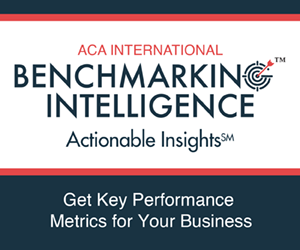 Committee members on both sides of the aisle discussed the bureau’s processes for rulemaking, with Chopra stating, “none of the [CFPB’s] guidance documents commit institutions to obligations under the law.”
Committee members on both sides of the aisle discussed the bureau’s processes for rulemaking, with Chopra stating, “none of the [CFPB’s] guidance documents commit institutions to obligations under the law.”
12/16/2022 10:00 A.M.
6.5 minute read
In its last hearing of the 117th Congress Wednesday, the House Financial Services Committee (HFSC) reviewed the Consumer Financial Protection Bureau’s actions in the last year under the leadership of Director Rohit Chopra, including the bureau’s approach to rulemaking and jurisdictional issues on topics such as fees and medical debt credit reporting.
Part of the discussion included the pending petition for certiorari from the bureau to the U.S. Supreme Court to review a 5th Circuit Court of Appeals’ decision declaring the bureau’s funding structure is unconstitutional.
In its memo (PDF) for the hearing, the HFSC focuses on bureau actions since April 2022, when Chopra last testified before the committee, including rulemaking developments on credit reporting, credit card late fees and consumer complaints, among other topics.
A day before the hearing, the CFPB added a proposed rule to its list for 2022 that would require certain nonbank covered entities, including debt collectors, to register with the bureau “when they become subject to certain local, state, or federal consumer protection agency or court orders,” ACA International previously reported.
Chairwoman U.S. Rep. Maxine Waters, D-Calif., supported the proposed rule in her opening remarks at the hearing and the bureau’s appeal of the 5th Circuit case while pledging to work with members on the opposite side of the aisle despite differences on views about the CFPB and its oversight by Congress.
Ranking member U.S. Rep. Patrick McHenry, R-N.C., who was elected chairman of the committee for the 118th Congress, said in his remarks there will be more oversight by the HFSC under his leadership.
“We have a lot to cover today, but I’ll start by stating the obvious: the lack of transparency with your agency is appalling,” McHenry said. “Over the past year, [c]ommittee Republicans sent you more than 10 letters, many with specific questions we want answered, to which you replied with single-page responses This prevents Congress from conducting proper oversight. It’s not good for financial institutions, and other market participants, nor the consumers they’re trying to serve.”
Hearing Discussion: Enforcement vs. Guidance
Members on both sides of the aisle focused on the bureau’s approach to rulemaking and guidance and the increase in guidance documents, interpretive rules and advisory opinions under Chopra’s leadership and if they follow the Administrative Procedure Act, plus language in press releases issued on those documents.
“The bureau has shown a willingness to regulate and operate by any means other than those that are legally and ethically appropriate in contravention to the Administrative Procedure Act and rulemaking process,” said U.S. Rep. Blaine Luetkemeyer, R-Mo. “The courts have already begun to chip away at the bureau’s illegal framework and actions—it’s long past time that Congress does our part.”
In questioning with McHenry, Chopra explained the bureau’s guidance and interpretive rules are in response to industry feedback, while McHenry sought clarity on how guidance relates to enforcement of laws.
“Enforcement is just one vehicle, but to promote compliance and clarity to also be able to provide more transparency on how we interpret rules … none of the guidance documents commit institutions to obligations under the law,” Chopra responded.
Meanwhile, U.S. Rep. Ed Perlmutter, D-Colo., tackled the bureau’s enforcement actions versus guidance in his questioning, stating that the guidance can serve as a “heads up” for regulated entities on particular regulations.
Chopra said the bureau’s guidance is offering transparency that allows other firms to do a “gut check,” and the bureau is offering legal interpretations about existing rules.
“Where we are seeking to create new obligations, we go through the rulemaking process,” Chopra said.
Committee members also noted the bureau’s fourth quarter budget request from the Federal Reserve was higher than past requests, and asked if the additional funds are designated for rulemaking.
“The bureau seems to follow a pattern to not issue a rule, but enforcement actions, blog posts, opinion letters … as an alternative to the rulemaking process, which strikes me as strange given the recent budget request,” said U.S. Rep. Bill Huizenga, R-Mich.
During his questioning at the hearing, U.S. Rep. Ralph Norman, R-S.C., built on discussions of the bureau’s rulemaking processes, noting constituents are concerned about how the bureau is rewriting rules and running as a “one-man marching crew.”
Moving on to debt and credit reporting, Norman asked for an explanation of how the bureau has authority to pick certain kinds of debt, such as medical debt or rental debt, and determined that it is not accurately reported, with Chopra responding that the bureau does not want credit reports to be used as a tool of “extortion.”
“Where we have focused on medical debt is really credit reporting and we see inaccuracies,” Chopra said.
CFPB Funding and the Courts
Potential changes to the bureau’s structure proposed through legislation are also working their way through the courts.
In October, the 5th Circuit ruled in Community Financial Services Association of America Ltd. v. CFPB that the CFPB’s funding through the Federal Reserve rather than congressional appropriations violates the U.S. Constitution’s separation of powers, ACA previously reported.
The CFPB then filed a petition for certiorari for the U.S. Supreme Court to review the 5th Circuit Court of Appeals’ decision, which U.S. Rep. Andy Barr, R-Ky., and Chopra debated during the hearing, in addition to the congressional appropriations process.
“The bureau’s argument not only misreads Supreme Court testament, but also the plain text of the appropriations clause,” Barr said, seeking Chopra’s stance on if the bureau’s funding is subject to congressional appropriations, to which Chopra responded it is the addressed in the petition to the Supreme Court.
“We believe the 5th Circuit is not correct,” Chopra said.
Barr asked for support of his legislation, the Taking Account of Bureaucrats’ Spending (TABS) Act, which would bring the bureau’s funding into the congressional appropriations process.
The Supreme Court has not responded to the bureau’s petition to date. The bureau requested for the Supreme Court to review the case during its current term.
ACA’s Take
ACA submitted a letter (PDF) to HFSC committee members urging Congress to consider ongoing concerns with the CFPB’s rulemaking processes, jurisdiction and actions surrounding medical debt credit reporting, among other topics.
“In recent months, the CFPB has targeted the work of the ARM industry in several ways. CFPB leadership still has not addressed unintended consequences raised by the ARM industry related to medical debt credit reporting, the Consumer Advisory Board does not have even a single revenue cycle specialist, the CFPB is not seeking public feedback on its actions related to debt collection, and much of the data the CFPB is relying on is anecdotal, and not scientifically rigorous,” said ACA CEO Scott Purcell in the letter. “This policymaking done in a vacuum will undoubtedly lead to worse outcomes for consumers, less access to affordable health care, and increased costs for all consumers.”
The allegations of the accounts receivable management industry’s treatment of medical debt on credit reports during the hearing are unfounded.
“An open and transparent process concerning the medical debt credit reporting changes the CFPB is pushing would have allowed stakeholders to bring to the table the unintended and harmful consequences that will now result from cherry picking certain payment obligations to exclude from the long-established credit reporting system,” Purcell said.
ACA’s letter also focused on the bureau’s approach to rulemaking through advisory opinions, guidance and new “CFPB Circulars,” plus the pending petition for certiorari from the bureau to review the 5th Circuit Court of Appeals’ decision on the bureau’s funding structure and vacating its payday lending rule.
Chopra also testified on the bureau’s semi-annual report to Congress before the Senate Committee on Banking, Housing and Urban Affairs Thursday and ACA submitted a letter for that hearing. ACA will provide more coverage of the HFSC discussions and Senate Banking Committee hearing and ACA’s advocacy in ACA Daily.
If you have executive leadership updates or other member news to share with ACA, contact our communications department at [email protected]. View our publications page for more information and our news submission guidelines here.
 Committee members on both sides of the aisle discussed the bureau’s processes for rulemaking, with Chopra stating, “none of the [CFPB’s] guidance documents commit institutions to obligations under the law.”
Committee members on both sides of the aisle discussed the bureau’s processes for rulemaking, with Chopra stating, “none of the [CFPB’s] guidance documents commit institutions to obligations under the law.”













